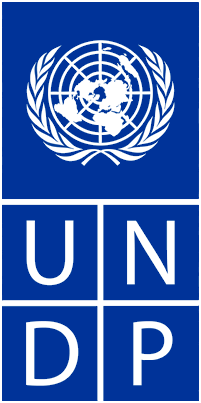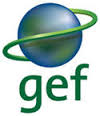Community / Land projects / Paraguay FOLUR
Paraguay FOLUR

€7253077.672
03/22 - 03/28
Actif
This project is part of
Implementing Organisations
Donors
Data Providers
Objectives
Promote landscape integrity and sustainable beef and soy value chains in two key biomes in Paraguay.
Other
Note: Disbursement data provided is cumulative and covers disbursement made by the project Agency.
Target Groups
326. The direct beneficiaries of the Project are 7,270 people, of whom 431 are women and 6,839 are men, living in the selected intervention areas.327. Project support will develop the capacities of the beneficiaries to: i) participate actively in territorial planning and development and implementation of land use plans; ii) participate in dialogue platforms and establish collaboration relationships among different sectors (public, private, NGOs, community organizations); iii) increase their awareness and knowledge on the importance of conserving biodiversity and ensuring the sustainability of the ecosystem services on which agricultural production depends; iv) better comply with the environmental legal framework for conservation and restoration of ecosystems ; v) apply biodiversity-friendly and sustainable land management practices for the sustainable use of resources and ecosystems; and vi) develop alternatives to diversify production and incomes.328. Under Component 1, through training 270 people (189 men and 81 women, including 30 indigenous peoples) from national and local governments as well as key beneficiaries will have improved capacities for planning, implementation and monitoring of urban and territorial management plans, for monitoring and enforcement of environmental policies and gender mainstreaming. In addition the involvement of beneficiaries through their organizations (producer associations, cooperatives, women´s organizations, indigenous people’s organizations that are relevant to the project) in the participatory processes and decision making to develop the POUTs will strengthen their economic, social and political empowerment. The resulting POUTs will incorporate the socio-economic proposals prioritized by the beneficiaries, including differentiated activities/budgets for women and indigenous peoples to guarantee their participation and respond adequately to their practical needs, strategic interests and key demands. 329. Under Component 2 the beneficiary target groups (producer associations, cooperatives, women´s organizations, indigenous people’s organizations) through participating in the soy and beef platforms will strengthen their political, social and economic empowerment. In these spaces, they will take part in dialogues, negotiations and decision making on an equal footing with public sector, traders, financial and other stakeholders on issues such as land use planning, sustainable production standards, financing, land and forest restoration, green seals, market access and responsible purchasing, gender and interculturality. This will enable to include proposals that balance the social, economic and environmental aspects of their development in the action plans of the platforms. By participating in the women´s platform and indigenous peoples working groups, women and indigenous peoples will strengthen their advocacy capacities. This will enable them to participate more actively and perform more efficiently in the platform meetings with all stakeholders with the purpose of proposing and incorporating gender and culturally sensitive actions that respond to their interests in the action plans of the platforms. In addition, 2,000 producers (5% women as minimum initial estimate to be confirmed during implementation) will be strengthened to apply land use planning and management with biodiversity considerations, SLM and adopt sustainable production standards. This will seek firstly to reverse or reduce land degradation at the farm level, so that in a second stage it will be possible to increase the productivity of these areas, thereby increasing the income generated for the producer, while conserving and restoring forests and biodiversity and enhancing carbon stocks. Women producers will be prioritized in the selection of demonstration farms and will receive technical and financial assistance to implement sustainable practices. This will allow to position and highlight women as producers and leaders, improve their economy and will serve as motivation for other women when exchanging experiences with their peers, increasing the interest of women in land planning and management as well as greater participation in training and outreach activities sponsored by the project (webinars, workshops and other events).330. Under Component 3, small landowners and communities (small farmers and indigenous peoples) will be supported to develop gender-sensitive and culturally relevant management plans for income diversification and investments. Beneficiaries will benefit from technical assistance to implement plans, including equipment, inputs, materials and training required for the productive proposals identified in their plans, increasing their food safety and achieving income diversification, while contributing to habitat conservation and restoration and carbon stock enhancement. Furthermore, the project will produce an analysis comparing property income with and without forest resource management, presenting numerical values to be able to show producers the economic value of maintaining forest resources (forest maintenance costs vs potential income from marketing environmental services certificates) that will serve to demonstrate landowners the advantages for becoming interested in restoration and subsequent certification under Law 3001/06. This will help generate additional incomes for landowners while enhancing forest conservation and restoration in their properties.331. Under Component 4, 5.000 producers (5% women as minimum initial estimate to be confirmed during implementation) will have increased their understanding and knowledge on the environmental regulatory framework, sustainable production practices, BD conservation, SLM and will be able to replicate the experiences and socio-economic benefits generated through Components 2 and 3.332. Project interventions and enhanced beneficiary capacities will result in local and regional benefits in terms of better livelihoods, preservation of rural lifestyle, cultural reassertion, and environmental sustainability that contribute to supporting long-term global environmental benefits. In particular, the benefits are: i) Conserving, restoring and maintaining ecosystem services provided by forests and other ecosystems; ii) Maintaining cultural, aesthetic and spiritual benefits, scenic beauty, preserving places of cultural significance, territorial identity, and valuing the natural heritage; iii) Economic benefits through new sources of diversification, income, food security of small holders, local and indigenous communities; iv) Social benefits in terms of alliances and empowerment of local communities and stakeholders (including women and indigenous peoples).




